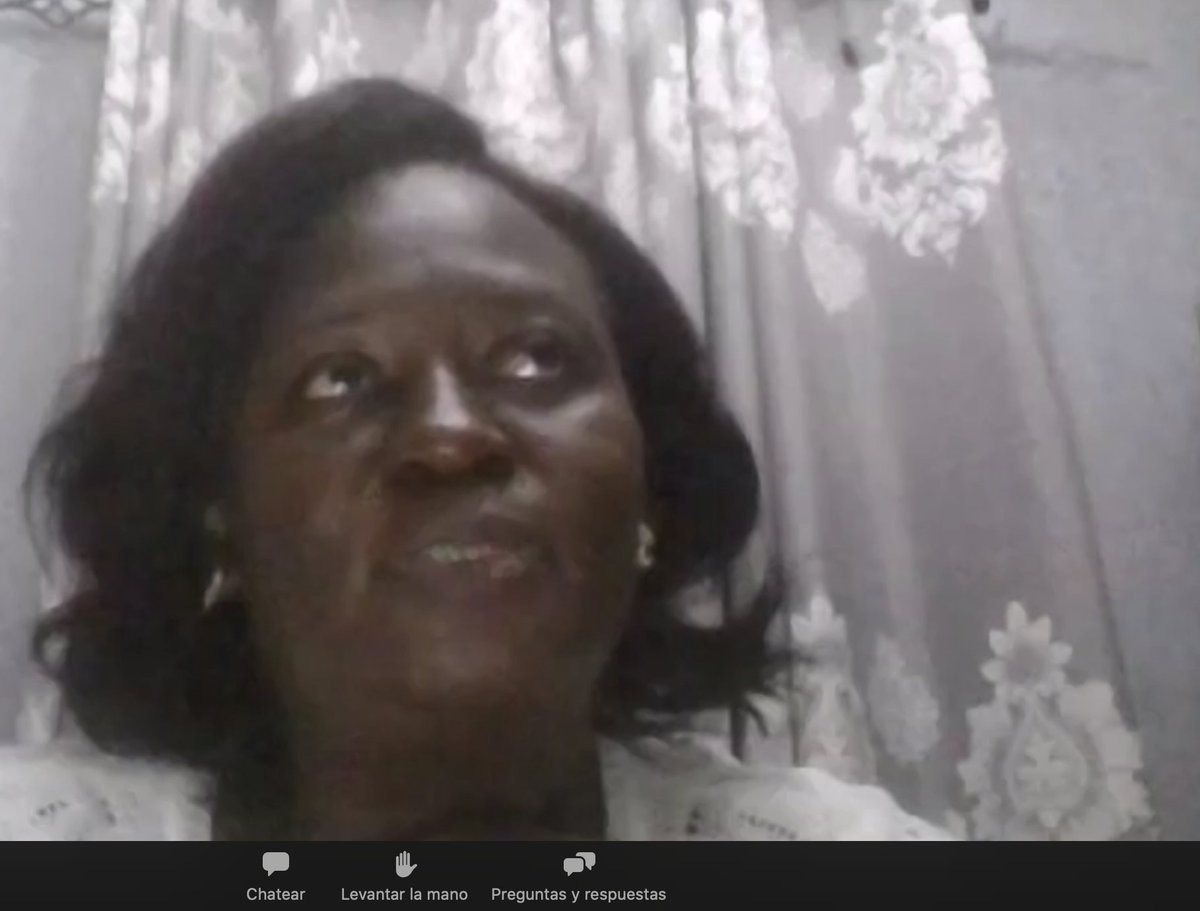
Dr. Payam Nahid explains the design of the trial:
#S31TB was a three-arm trial of:
2HPZE/2HP (4 months)
2HPZM/2HPM (4 months)
2HRZE/4HR (6 months) – control arm
It was open label, because with rifampicin is better to take without food whereas rifapentine is better with food🥑
#S31TB was a three-arm trial of:
2HPZE/2HP (4 months)
2HPZM/2HPM (4 months)
2HRZE/4HR (6 months) – control arm
It was open label, because with rifampicin is better to take without food whereas rifapentine is better with food🥑

Dorothy Namutamba answers about the collaboration communities- researchers.
One of community requests was to lower CD4 count limit to 100 for #PLWHIV to ensure we had enough data for this group.
Also, adolescents were included.
This ensures no delays in guidelines!
One of community requests was to lower CD4 count limit to 100 for #PLWHIV to ensure we had enough data for this group.
Also, adolescents were included.
This ensures no delays in guidelines!
Cynthia C. Chirwa adds how people with cavity pulmonary TB 🫁 but requests that pregnant people are also included in future to ensure safety & dosing data!
Dr. Nahid echoes how good were those discussions, where protocol evolved until meeting both community and research needs.
Dr. Nahid echoes how good were those discussions, where protocol evolved until meeting both community and research needs.
Dr. Dick Chaisson is explaining the "non-inferiority" concept (aka: as good‼️) and the rational behind the language but, mainly, rational/ design.
It helps to see if a shorter treatment is as good as the longer one... as #S31TB shown in all groups and assessments 💪
It helps to see if a shorter treatment is as good as the longer one... as #S31TB shown in all groups and assessments 💪

Even the rifapentine alone regimen worked pretty well, but did not meet all the defined end-points.
Dr. Nahid reminds us of how important are these results: #S31TB has shown that a shorter treatment is possible, something it didn't happen for more than 40 years!
Dr. Nahid reminds us of how important are these results: #S31TB has shown that a shorter treatment is possible, something it didn't happen for more than 40 years!

As per the inclusion of #PLWHIV, there was debate about efavirenz & drug-drug interaction. The data show that there is no drug-drug interaction and it's safe.
As per other #raltegravir, Dr. Chaisson confirms there are trials on-going,we'll have the answer soon.
As per other #raltegravir, Dr. Chaisson confirms there are trials on-going,we'll have the answer soon.

Gender balance: 70% of the participants were self-identified men. Still, this matches worldwide epidemiology.
There are tons of questions of why this happens: may be cultural access issues or some biology based differences, or, properly, a mix of things.
There are tons of questions of why this happens: may be cultural access issues or some biology based differences, or, properly, a mix of things.
Dr. Barbara Seaworth, CRAG member, talks about fluoroquinolone safety. "I feel comfortable using this regimen".
There is safety data that backs the new regimen.
There is safety data that backs the new regimen.

Following the moxi safety issue, @ArneDelft asks to keep pushing for shorter and safer regimens, more tolerable.
Also, other comments remind us that we need to ensure that drug-sensibility testing must be available to ensure people receive the correct and proper treatment.
Also, other comments remind us that we need to ensure that drug-sensibility testing must be available to ensure people receive the correct and proper treatment.
Overall resistance to study drugs at enrollment was found in about 5%, mostly INH and RIF.
Still, there are areas of the world where moxifloxacin resistance is high. We need point-of-care drug sensibility tests!
Still, there are areas of the world where moxifloxacin resistance is high. We need point-of-care drug sensibility tests!
Next steps? Access!
Cynthia Chirwa lists the needs from communities. The first one is access and adapt the treatment guidelines, engage with the national TB programs.
Also, we need more research to cover the missing data (in certain populations, drug-drug interaction, etc.).
Cynthia Chirwa lists the needs from communities. The first one is access and adapt the treatment guidelines, engage with the national TB programs.
Also, we need more research to cover the missing data (in certain populations, drug-drug interaction, etc.).

Dorothy Namutamba also remind us that results need to translate in access -first of all, with the countries where trials took place.
Kampala site enrolled most of participants of the #S31TB. We need to ensure the new regimen benefit communities that made the results possible.
Kampala site enrolled most of participants of the #S31TB. We need to ensure the new regimen benefit communities that made the results possible.

One of the issues for access will be the price.
The new regimen would be around 200$ at GDF whereas the current standard is 3 or 4 times lower.
Pill burden can be another challenge: patients take more pills in the 4month because there's no fix dose.
The new regimen would be around 200$ at GDF whereas the current standard is 3 or 4 times lower.
Pill burden can be another challenge: patients take more pills in the 4month because there's no fix dose.
Dr. Dick Chaisson:
"There hasn't been a lot of cost-effectiveness research done yet, but the drug costs right now are higher (~$200 GDF prices), but other costs (monitoring, clinical cost, etc.) are lower. We need to reduce the cost of the drugs"
"There hasn't been a lot of cost-effectiveness research done yet, but the drug costs right now are higher (~$200 GDF prices), but other costs (monitoring, clinical cost, etc.) are lower. We need to reduce the cost of the drugs"
About inclusion of pregnant women, a long request from CRAG: safety and efficacy data is paramount. Barbara points out that, now, rather than an exclusion criteria and community asking for inclusion, research teams will need to specify really well why they should be excluded.
Post treatment TPT is not recommended, but it is an open question.
The Western Cape has higher rates of recurrence than most places, and some people think post-Rx TPT makes sense, but it would be useful to study it.
The Western Cape has higher rates of recurrence than most places, and some people think post-Rx TPT makes sense, but it would be useful to study it.
We ask panelists to end with their number 1 advocacy issue:
- Size the moment: use the momentum to keep working.
- Recommendation by @WHO @CDC_TB and have fix dose in a year time
- Dissemination of results!
- More funding for TB research
- Access in countries of #S31TB research



- Size the moment: use the momentum to keep working.
- Recommendation by @WHO @CDC_TB and have fix dose in a year time
- Dissemination of results!
- More funding for TB research
- Access in countries of #S31TB research




If you missed yesterday's session and this cool thread 🧵 was not enough...
Please, follow the link and access to the recording!
📽️
Please, follow the link and access to the recording!
📽️
• • •
Missing some Tweet in this thread? You can try to
force a refresh







